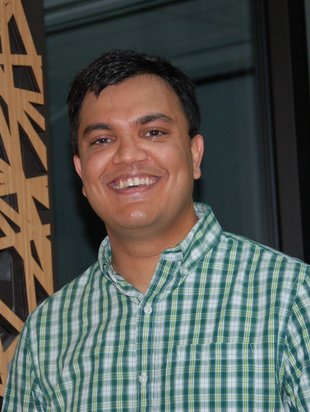Communications and Signal Processing Seminar
On False Positive Error
This event is free and open to the publicAdd to Google Calendar

Abstract: Controlling the false positive error in model selection is a prominent paradigm for gathering evidence in data-driven science. In model selection problems such as variable selection and graph estimation, models are characterized by an underlying Boolean structure such as presence or absence of a variable or an edge. Therefore, false positive error or false negative error can be conveniently specified as the number of variables/edges that are incorrectly included or excluded in an estimated model. However, the increasing complexity of modern datasets has been accompanied by the use of sophisticated modeling paradigms in which defining false positive error is a significant challenge. For example, models specified by structures such as partitions (for clustering), permutations (for ranking), directed acyclic graphs (for causal inference), or subspaces (for principal components analysis) are not characterized by a simple Boolean logical structure, which leads to difficulties with formalizing and controlling false positive error. We present a generic approach to endow a collection of models with partial order structure, which leads to systematic approaches for defining natural generalizations of false positive error and methodology for controlling this error. (Joint work with Armeen Taeb, Peter Bühlmann, Parikshit Shah)
Bio: Venkat Chandrasekaran is a Professor at Caltech in Computing and Mathematical Sciences and in Electrical Engineering. He received a Ph.D. in Electrical Engineering and Computer Science from MIT (2011), and he received undergraduate degrees in Mathematics and in Electrical and Computer Engineering from Rice University (2005). He was awarded the Jin-Au Kong Dissertation Prize for the best doctoral thesis in Electrical Engineering at MIT (2012), the Young Researcher Prize in Continuous Optimization (2013), the Sloan Research Fellowship in Mathematics (2016), and the INFORMS Optimization Society Prize for Young Researchers (2016). His research interests lie in mathematical optimization and its interface with topics in the information sciences.
*** The event will take place in a hybrid format. The location for in-person attendance will be room 3433 EECS. Attendance will also be available via Zoom.
Join Zoom Meeting: https://umich.zoom.us/j/91414297851
Meeting ID: 914 1429 7851
Passcode: XXX (Will be sent via email to attendees)
Zoom Passcode information is available upon request to Shelly Feldkamp ([email protected]).
 MENU
MENU 
